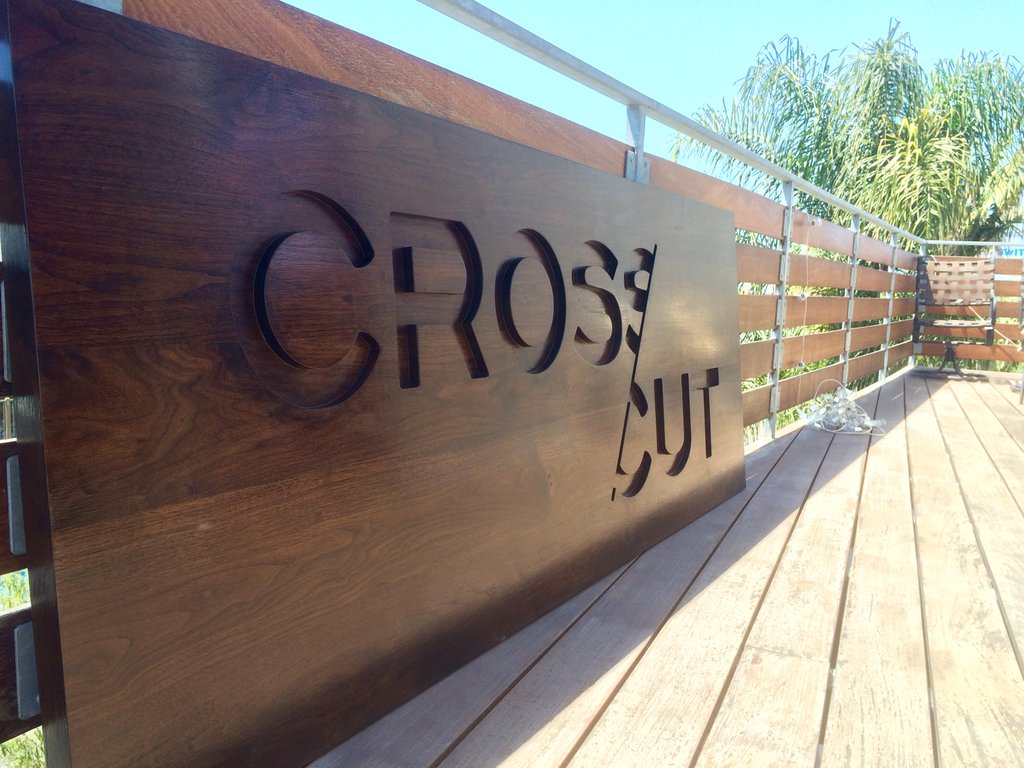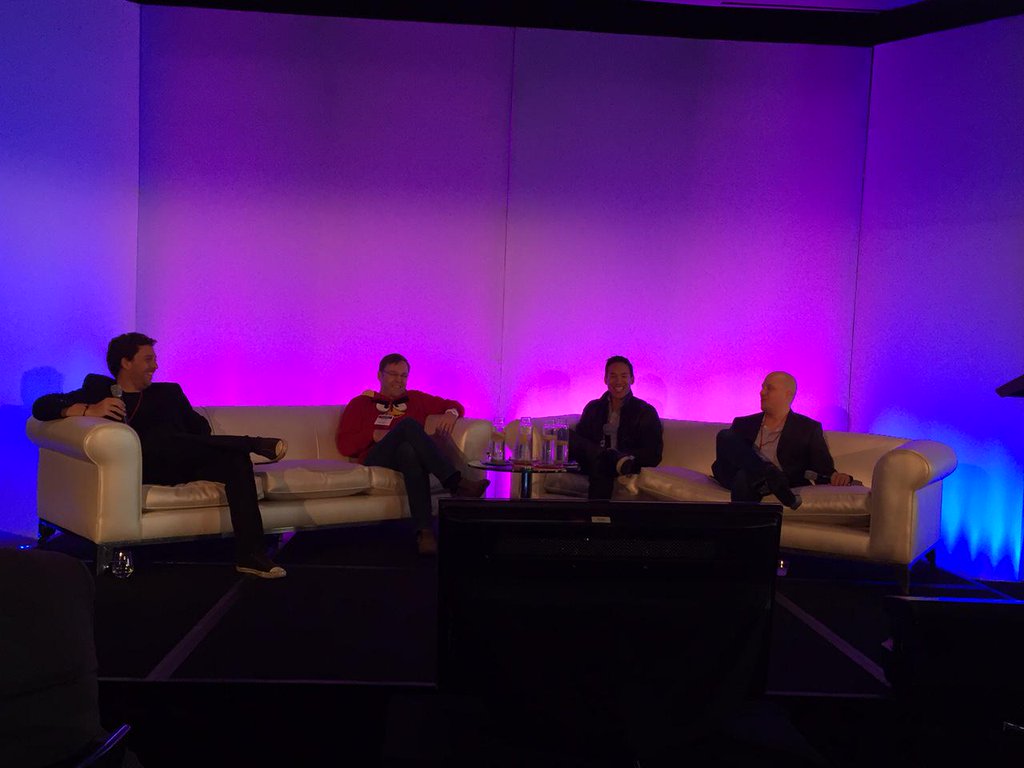Oct 26, 2015 8 Questions with: Clinton Foy
I had the privilege of getting to know Clinton Foy when we both served as board members at APCF (Asian Pacific Community Fund), a community based non-profit fund. At the time, he was COO, General Counsel, and head of business development for Square Enix, a $2 billion video game publisher. Clinton managed licensing and strategic partnerships for SPACE INVADERS, FINAL FANTASY, and TOMB RAIDER franchises, overseeing more than 100 product launches and growing annual revenues to more than $300 million.We coincidentally ran into each other at a venture event a couple of years ago and that’s when I learned that he had joined CrossCut Ventures, where he focuses on early stage venture capital investments in mobile, social, cloud, consumer, new platforms, augmented reality, virtual reality, and the video game space. CrossCut began in 2008 when the founders saw the Southern California ecosystem emerge, and it has proven to be a true catalyst for innovation in the area. It has been fun for Imprint to compare notes with Clinton about the Los Angeles venture space, and we were happy to participate in CrossCut Venture’s third $75 million fund.
Before Square Enix, Clinton practiced law with the Heller Ehrman Venture Law Group in Seattle, San Francisco, and Silicon Valley, representing clients including Microsoft, Sony, and Yahoo. Clinton earned a BA from the University of Notre Dame, JD from University of Washington School of Law, and MA from Stanford University.
How did you become involved with CrossCut Ventures from Square Enix?
I loved my job as COO at Square Enix. I got to work with some of the best IP in gaming and collaborate with the top creative geniuses in the field. Tomb Raider, Batman, Final Fantasy, Kingdom Hearts with Disney — all of these titles and IP offered amazing experiences and challenges. But the best experience I had working at Square Enix involved spinning up small startup teams within the company to tackle hard problems around mobile, online, PC, data, and cloud. We were essentially running our own internal venture capital operations with game studios and small cells of developers. This got me very interested in the venture capital model. I saw the revolution going on in mobile, touchscreen devices, VR, and AR, and realized that small, independent venture backed startups with talented teams were inherently more agile, faster, and could build value better than big established giants. I saw this happen with Riot Games, Super Cell, and Oculus. Through my network I got introduced to the “godfather of LA Venture Capital,” Rick Smith from CrossCut Ventures. Rick and the CrossCut partners, Brett Brewer and Brian Garrett, brought me in to some partner meetings, had me meet with potential investments and portfolio companies, and eventually, gave me an offer I couldn’t refuse.
What makes CrossCut different as an LA venture player?
There is a quantitative answer and a qualitative answer. CrossCut Ventures is the biggest and most established Seed stage VC fund in Southern California with over $100M under management. We’re on our third fund, CrossCut Ventures 3, and we have historically achieved high upper tenth percentile returns for our fund and industry leading 40% plus IRR. Qualitatively, the real thing that makes CrossCut different is that we are all ex-operators with strong networks of entrepreneurs, portfolio companies, investors, and operators who all help us and the SoCal tech ecosystem in significant ways. We set ambitious goals to be the preeminent company building capital of LA, and the most added value, helpful, investors anywhere. We strive to be the first call for top entrepreneurs and a true service provider for our portfolio companies.
What are the most rewarding elements about working on the venture side?
The best part of working on the venture side is the amazing mix of people you meet on a daily basis. The CrossCut office has a steady flow of interesting, passionate, inspiring entrepreneurs who want to change the world. We get to meet crazy, smart people everyday, learn from them and then figure out how we can help them. It’s incredibly stimulating and engaging. Professionally, I’m humbled by how many fantastic, talented people I get to meet by working at CrossCut.
Describe your experience working with some of founding teams as you offer strategic growth advice?
I’m involved with four of five portfolio companies on a daily basis, as a board member and through emails, calls, in person meetings and texts. Super Evil MegaCorp, Vulcun, Little Labs and Mobcrush (and a few yet to be announced stealth companies). We help with strategic planning, hiring executives, financing, syndicating rounds with other VCs, executive coaching, board work, competitive analysis, market analysis, and M&A. In a typical day, I’ll make 5-10 quality introductions to portfolio companies for strategic partnerships or hires, review and offer feedback on products — in some cases this means playing games, or playing on new platforms, or reviewing beta sites which is a ton of fun.
What are the critical elements you personally look for when vetting investment prospects?
At an early stage it is all about the Team, then the Market, then the Product. The team and the entrepreneur is most important. Top entrepreneurs obsess over solving problems and are passionate about building great culture and teams. It’s hard to describe but you know it when you see it. I have to have conviction that the entrepreneur has integrity, grit, talent, and the skills to carry out and execute on their ambitious plans. I want to know where they came from and what experiences, failures and successes brought them to this point in time. I want to know why it is their manifest destiny to create something great.
What are some of the most transformational mistakes you’ve seen founders make?
Often times we see founders stumble when it comes to financing and not thinking big enough. As venture capitalists we’re not interested in small outcomes or “flavor of the month” fads. Ideally, we’re talking to founders who are thinking hard about the future and are striving to build a fundamentally strong, lasting business. You should never start a company with the mindset of, “I’ll work on this for a few years and then someone will acquire it”. It’s seldom that easy.
But perhaps the biggest mistake we’ve seen founders make is not hiring the right people. The first 10 hires you make will define your company’s values and culture for years to come, and will very likely mean the difference between success and failure.
What is your favorite post work destination?
Ideally, you don’t differentiate between work and play. Mastering the art of work means making work fun so it’s not work. It sounds corny but I guess I don’t see what I do as work. It’s fun, but it’s also extremely hard and challenging. It’s also engaging and it’s fundamentally something I love doing. Our work actually never ends. I’m always on and thinking about how to help portfolio companies and our entrepreneurs. After a day of meetings, pitches, and working with portfolio companies, I love to exercise outside, run by the beach, meditate, and most importantly, spend time with my friends and family. I love spending time with my family more than anything.
Where do you look for inspiration?
Reading. I’m a voracious consumer of everything. Science fiction, blogs, tech articles, scientific journals. I’m currently reading the Elon Musk biography and just finished Neal Stephenson’s SevenEves. I also love meeting inspiring, smart people who have crazy big ideas.







